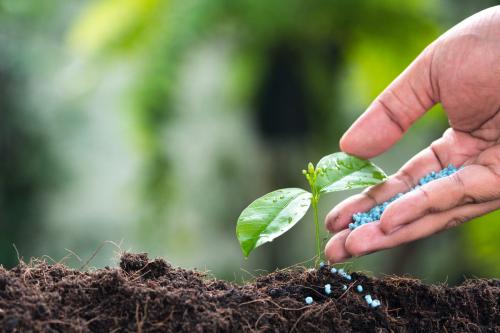The Pesticides Industry in Pakistan: Nurturing Agricultural Growth

In a country like Pakistan, where agriculture forms the
backbone of the economy, the role of pesticides in ensuring crop health and
yield cannot be overstated. From the lush green fields of Punjab to the fertile
lands of Sindh, pesticides play a crucial role in safeguarding crops against
harmful pests and diseases. Let's delve deeper into the dynamics of the pesticides
industry in Pakistan, exploring its historical background, current
scenario, regulatory framework, types of pesticides used, impact on
agriculture, challenges faced, and future trends.
Introduction to the Pesticides Industry in Pakistan
Pesticides are chemical substances designed to control,
repel, or eliminate pests that pose threats to crops. In Pakistan, where
agriculture employs a significant portion of the population and contributes
substantially to the GDP, the pesticides industry holds immense importance.
The history of pesticide usage in Pakistan dates back
several decades. Initially, farmers relied on traditional methods and organic
compounds to protect their crops. However, with the advent of modern
agriculture and the Green Revolution in the 1960s, the demand for chemical
pesticides surged.
Today, Pakistan's pesticides market is thriving, with a wide
range of products available to farmers. Both domestic manufacturers and
multinational corporations contribute to meeting the demand for pesticides
across the country.
To ensure the safe and responsible use of pesticides,
Pakistan has established a comprehensive regulatory framework. Government
agencies such as the Pesticides Registration Board (PRB) regulate the import,
manufacturing, sale, and use of pesticides in the country.
Types of Pesticides Used
Pesticides used in Pakistan can be classified based on their
chemical composition, including insecticides, herbicides, fungicides, and
rodenticides. Each type serves a specific purpose in protecting crops from
different types of pests and diseases.
The widespread use of pesticides has significantly enhanced
agricultural productivity in Pakistan. By controlling pests and diseases,
pesticides contribute to higher crop yields and improved quality. However,
their indiscriminate use also raises concerns about environmental pollution and
human health risks.
Challenges Faced by the Industry
Despite its benefits, the pesticides industry in Pakistan
faces several challenges. Pests developing resistance to commonly used
pesticides, along with health hazards posed to farmers and environmental
degradation, are among the key concerns.
Looking ahead, the pesticides industry is poised for
significant developments. With advancements in biotechnology and the growing
emphasis on sustainable agricultural fertilizer, the focus
is shifting towards eco-friendly pesticides and integrated pest management
practices.
Conclusion
In conclusion, the pesticides industry plays a vital role in
supporting agricultural growth and ensuring food security in Pakistan. While
facing challenges such as pest resistance and environmental concerns, the
industry continues to evolve, driven by innovation and regulatory reforms.
FAQs
Are pesticides
necessary for agriculture in Pakistan?
Yes, pesticides are essential for protecting crops from
pests and diseases, thereby ensuring agricultural productivity.
What are the
environmental impacts of pesticide use?
Pesticides can contribute to environmental pollution,
affecting soil, water, and wildlife populations.
How does the
government regulate pesticide usage?
The government regulates pesticide usage through agencies
like the Pesticides Registration Board, ensuring products meet safety
standards.
Are there
alternatives to chemical pesticides?
Yes, alternatives such as biopesticides and integrated pest
management are gaining traction as sustainable options.
What measures can
farmers take to minimize pesticide risks?
Farmers can follow recommended dosage and application
guidelines, use protective gear, and adopt integrated pest management practices
to minimize risks.
Post Your Ad Here
Comments